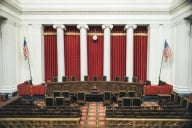You have /5 articles left.
Sign up for a free account or log in.
The University of Colorado and Ward Churchill appeared at the end of last week to be very close to a deal in which he would have been paid a six-figure sum to quit his tenured position.
But the deal collapsed when members of the university's Board of Regents learned of reports, revealed in The Rocky Mountain News, that a Canadian university had complained to Colorado officials that Churchill, in one of his essays, had plagiarized one of its professor's articles on Indian fishing treaty rights, and that Churchill had made a threatening phone call to the professor.
In response to questions about the newspaper's article, Churchill sent an e-mail message to Inside Higher Ed denying the allegations, and criticizing the reporters who have publicized them. The e-mail, in full, said: "Both allegations are categorically false, and I believe I can prove it. An interesting twist is emerging, moreover. It appears that the 'investigative' reporters involved have themselves plagiarized another writer. Worse still, they left unmentioned -- indeed quietly reversed -- his entirely valid conclusion that rather than being guilty of plagiarism, I'd from time to time written pieces for other people."
A panel of university officials has been studying whether Churchill, a professor of ethnic studies at Colorado's Boulder campus, should be dismissed. That inquiry started in the wake of nationwide outrage over an essay Churchill wrote about 9/11, suggesting that many of the victims in the World Trade Center were "little Eichmanns." University officials have suggested that they do not think that they could legally fire Churchill based only on his public statements. But in the last two months, a series of other charges about him have surfaced -- with people questioning everything from the originality of his artwork to his heritage as a Native American.
The latest charges could be much more significant. In a series of leaks and statements about the settlement negotiations, University of Colorado officials have been trying to explain to the public why they might spend hundreds of thousands of dollars to get rid of a professor who has been vilified in the state, and whom many public officials -- including the governor -- want fired outright. The line from Colorado officials is that barring very specific kinds of academic, professional or legal misconduct, it's next to impossible to fire a tenured professor.
Copying another scholar's work, and threatening that scholar, however, could meet such a definition.
Michael Carrigan, a Colorado regent, told The Rocky Mountain News that the latest report "raised allegations about specific threats against a specific person." Carrigan added, "I don't know if they're true, but I think they merit further consideration. I will say that story raised substantial concerns with me."
The newspaper first reported the plagiarism allegations on Friday, saying that Dalhousie University recently sent Colorado officials a report prepared in 1997 detailing charges that Churchill had plagiarized the work of Fay Cohen, a professor at the Nova Scotia university. A Dalhousie spokesman told the newspaper that Cohen did not pursue the charges because she became concerned after Churchill called her in the middle of the night shortly after she had made the charge and said, "I'll get you for this."
In an interview Sunday evening, the spokesman, Charles Crosby, said that Colorado officials heard about the report and requested it from Dalhousie. He said that the report has not been made public, but that it did find that Churchill had plagiarized Cohen. Crosby said that Cohen requested the investigation because she worried that the appearance of similar material in her work and Churchill's might reflect poorly on her. Crosby said that Cohen told Dalhousie officials in 1997 about the call from Churchill, long before Churchill was in the news, but that she didn't want to pursue formal charges.
An e-mail message from Churchill to the newspaper, after it published the article Friday, said: "On the matter of my supposedly 'threatening' her, I did no such thing. What would I be threatening her ABOUT? An end note? The closest to what she seems to be alleging -- assuming what's in the paper is accurate -- is my telling her during a call placed in mid-afternoon that I'd never work with her again. While the conversation was less than cordial, it involved no physical threat on my part, nor even an intimation of adverse action in a professional sense."
David Lane, Churchill's lawyer, in an e-mail message to Inside Higher Ed, reiterated those denials and said that the academic work in question was "a compilation from several authors." Lane said that Churchill "vehemently denies ever threatening" Cohen.
And Lane added, on the talks for Churchill to leave the university: "Negotiations have indeed stalled but that does not mean they are dead."
The Churchill controversy continues to be debated by academics -- at Colorado and elsewhere.
Churchill's statements about 9/11 first reached a broad public prior to a speech he was scheduled to make at Hamilton College -- a talk that was called off because of security concerns. Since then, Churchill has appeared at several colleges while others have debated whether they should have him talk on campus.
The latest university to debate the issue is Eastern Washington University, where hundreds of students and faculty members rallied on Thursday to protest the decision of the college's president to call off a planned appearance by Churchill.
In a statement issued last month, Stephen Jordan, the president, cited safety reasons for canceling the appearance and said that doing do did not infringe on First Amendment freedoms. "We are canceling an event, not an idea," he said. "Mr. Churchill still has multiple venues for the outlet of his ideas. Neither this university nor the state's taxpayers are under any obligation to provide an appearance venue for Mr. Churchill if his presence threatens the safety and security of this campus."








